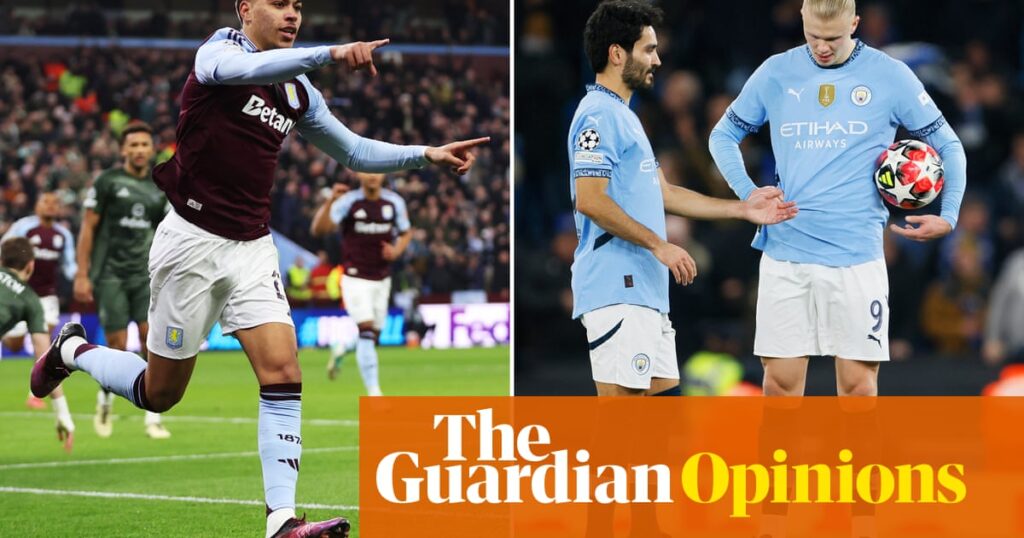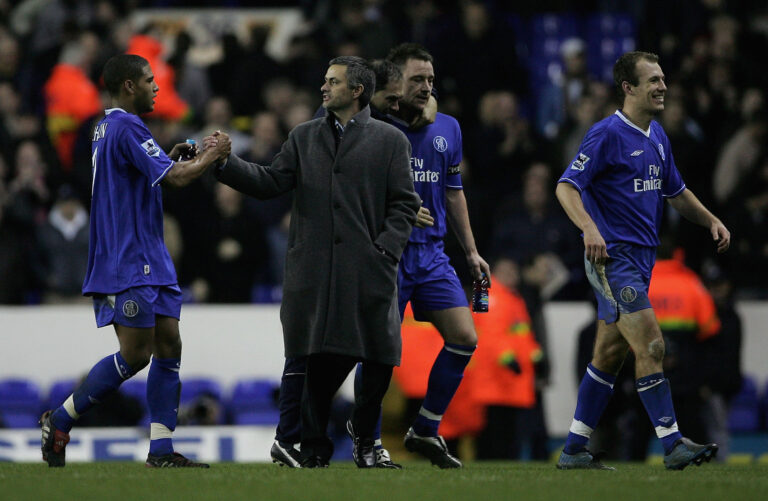
The cynics were wrong. It was not about staving off the threat of a breakaway Super League for a few more seasons by offering Europe’s top clubs a face-saving version of it. The new, expanded format of the Uefa Champions League would enable “more teams and therefore more coaches and players to compete in more competitive games on the European stage“. The “common purpose“, Uefa reminded us, was “to sustain domestic leagues”.
However, now that the first phase of the revamped Champions League is over, if the numbers are different (more games, more goals, more money), the story they tell, that of a competition remaining a closed shop for most, is not. The same forces dominate the European football landscape as they have done for close to two decades. None of the continent’s behemoths failed to qualify for the second stage of the tournament, despite the talk of “increased jeopardy” and Manchester City’s best efforts to engineer a self-inflicted shock to what is essentially a self-perpetuating system. The only “change” there has been is a further consolidation of the old order.

Yet this is not the most perverse effect of the new format, which, remember, was meant to “sustain domestic leagues”, but has instead exacerbated an already-existing phenomenon: the creation of a second-tier “super elite” of clubs whose earnings in European tournaments dwarf the revenues available in their domestic competitions. This is not new. Clubs such as Rosenborg in Norway or Skonto FC, now defunct, in Latvia had built their domestic dominance on the money generated by their participation in Uefa tournaments. What is new are the sums at stake. Uefa distributed €754m to the 32 teams which took part in the 2010-11 Champions League. In 2017-18, the pot had grown to €1.3bn. It is now €2.47bn.
Because of the disproportionate nature of the rewards available to them, those clubs enjoy a financial edge over their rivals at home of such magnitude that they are virtually guaranteed to win title after title in their national leagues, thereby qualifying for the next edition of the Champions League, perpetuating a cycle which turns national leagues into processions whose outcome is rarely in doubt. Moreover, the actual results of those clubs in Europe’s top competition – once they reach the league phase – are immaterial. Slovan Bratislava, who have won every championship title in Slovakia since 2017-18, did remarkably well to qualify for the Champions League proper, but then lost eight matches on the trot. They were still awarded €21.9m by Uefa, more than double their normal yearly budget.
after newsletter promotion
The Swiss champions, Young Boys, who also finished the league phase pointless, and with a goal difference of -21, were allocated €30.2m, a sum which exceeds the annual turnover of nine of their 11 rivals in the Swiss Super League. Crvena Zvezda, who are well on their way to winning an eighth consecutive Serbian title, fared a bit better in the Champions League (two wins and six losses) but never threatened to qualify. Their disappointment will have been tempered by the €32m they pocketed for their elimination. Then there is Celtic, who have made €46.2m so far, almost double Aberdeen’s turnover, and six times Dundee United’s. But then, there always is Celtic.
Those millions are enough for these clubs to exert a quasi-impregnable grip on their domestic competitions – but not quite enough to challenge the big beasts on the European scene, keeping a status quo which all of the beneficiaries have good reasons to protect. It is unlikely that the €308m, which Uefa has set aside for its “solidarity fund”, for the benefit of top-tier European clubs who do not take part in its competitions, will suffice to address the imbalance at the heart of European football, should anyone have a taste for it.



